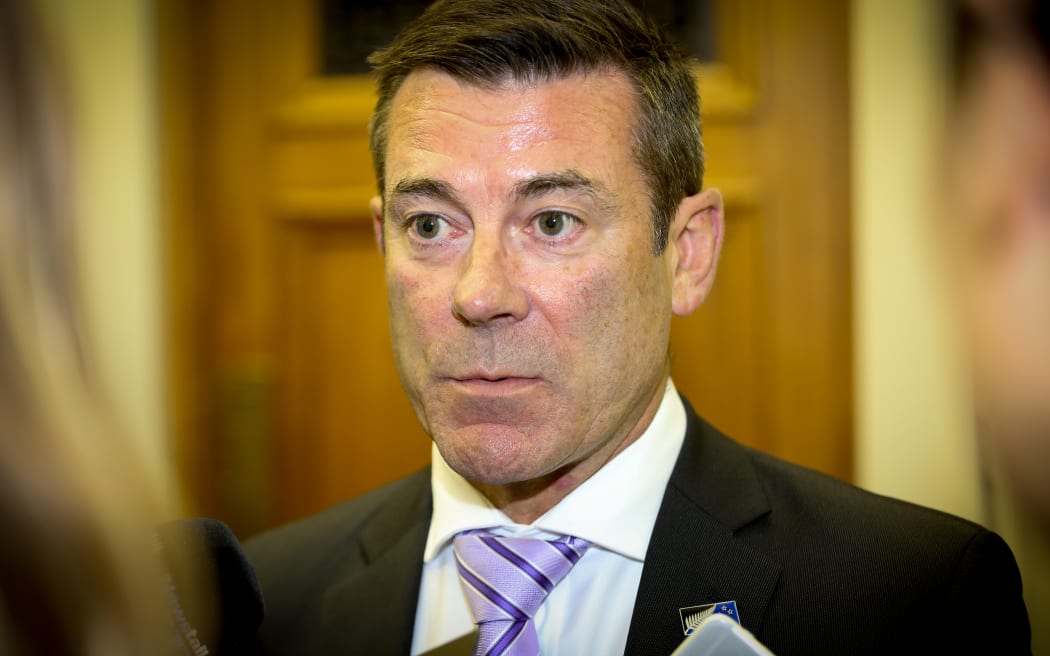Payroll companies say revelations that hundreds of thousands of workers could be owed millions of dollars in holiday pay should not be a shock to employers - or the government
Payroll providers, unions and lawyers agree the 12-year-old legislation is overly complicated and confusing and in urgent need of reform.
The government, however, says it will not consider changing the law to make it easier to comply with the Holidays Act.
Of 42 investigations into holiday pay problems, the Labour Inspectorate has completed 20, with arrears determined in eight cases, covering about 24,000 employees.
The problem stems from some employers not keeping account of fluctuating hours and payments when calculating holiday entitlements.
The the average amount of underpayment is $70 and $1800 per employee.
Unite Union national director Mike Treen told Nine to Noon hundreds of thousands of people working on zero hours contracts in the fast food industry, security companies and hotels were likely to be affected.
"We also know that at least some payroll providers have been aware of the problem and alerted employers to the problem, and employers have said 'no, we don't want to know'."
Mr Treen said some companies, including the fast food giant McDonalds, were taking a responsible approach and bringing in an independent auditor to check their payroll systems.
Business New Zealand chief executive Kirk Hope said the law needed to change to make it easier for employers who had to deal with paying staff on variable hours, such as shift workers.
He said 1700 hospitality businesses had sought help with holiday pay calculations over the past year.
"So employers are really concerned that they're paying the right amount to their workers," he said.
The formula for calculating holiday pay needed to be simplified, Mr Hope said.
According to Duncan Cotterill employment lawyer Olivia Grant, nine out of 10 businesses with a workforce doing variable hours or overtime could be calculating holiday pay incorrectly.
Her advice to companies was to get independent legal advice and an audit to ensure they were complying with the law.
To work out what an employee is owed, you have to go all the way back to their very first pay packet, because every payment is affected by the one before, she said.
"It's a nightmare, it's complex, it's onerous on employers and it's costly."
Outstanding holiday pay could amount to hundreds of even thousands of dollars in some cases although, due to the statute of limitations, it could only be calculated for the previous six years.
The fact that even government departments were getting it wrong showed the Holidays Act was over complicated and in urgent need of reform, she said.
'How do you simplify it without reducing entitlements?'
Minister for Workplace Relations Michael Woodhouse said, despite the complexity of the law, he was not in a mind to change it.
"The fact is, people don't want entitlements to be reduced. The methodology is complicated - employers, payroll providers will agree that's the case. The question is how do you simplify it without reducing entitlements," he said.

Minister for Workplace Relations Michael Woodhouse said he would not be changing the laws around holiday pay. Photo: RNZ / Alexander Robertson
Mr Woodhouse said it was up to both employees and employers to make sure everyone was getting paid correctly.
"There's a combined process. Employers obviously have the obligation, employees want to know they're getting their entitlements, unions have a role to play [and] so does the Labour Inspectorate."
Minister for Business, Innovation and Employment Steven Joyce, meanwhile, dismissed the Labour Party's calls for an independent inquiry into the problem.
He said the Labour Inspectorate was responsible for ensuring compliance.
"They've been given a significant increase in resources under this government to monitor the employment relations environment, so I do actually think they're doing a good job" he said.
"The challenge will be for private companies and other public agencies to make sure that they are able to get their payroll providers and systems to do exactly as the law says."
Legislation, work arrangements and payroll provider support
Victoria University labour law specialist Gordon Anderson said the legislation itself was not that complicated, but a profusion of flexible working arrangements, casual contracts and shift arrangements had made it complex.
"The employers are always going to be liable to pay the correct pay to employees. If there are faults in the system, they may have some comeback against the payroll system, although that would depend on the exact contractual arrangements between them."
Professor Anderson said the buck stopped with employers to get it right, but they might be able to pass the buck to their payroll provider in some cases.
The Payroll Practitioners Association said its members had experienced problems ever since the Holidays Act came into effect in April 2004.
For instance, it said, there were multiple ways to calculate annual leave entitlements - the 52-week average, or ordinary weekly pay, or the average over the last four weeks worked.
The law demands employment records are kept in house but, for leave calculations, one must use days or weeks.
Since the Ministry of Business, Innovation and Employment (MBIE) took over from the old Department of Labour, it had refused to collaborate on a specification for payroll providers, Mr Jenkins said.
"They won't front up with their current interpretation so we're kind of blind because they're saying it has to be done a certain way but they won't share how it should be done.
"So they're going to our members, auditing them, threatening them with prosecution, saying you've got it wrong
"But when our members say, 'Tell us what we've got to do to get it right because that's all we want to do', they're telling them to go seek independent advice and not helping them."
After refusing to sign off on payroll specifications two and a half years ago, Mr Jenkins said, MBIE announced in April it was forming a group to discuss designing some, so the industry was watching with interest.
In a written statement, MBIE said it provided guidance and information on the legislation but it was not the ministry's role to provide legal advice on how employers should apply the Holidays Act.
This is up to employers and payroll providers to source.
"We also advise employers to contact their payroll providers to help them to check their own systems to ensure they are following their legal requirements. They may also approach their accountant who may have further advice."
The law change that brought in a new way of calculating annual leave was introduced in 2003 under the then Labour government.
The current government reviewed the Holidays Act in 2010, but no substantial changes were made.




